Plastic is a design failure disguised as an incredible material. It is cheap and strong, and it can be turned into a thousand different forms. These characteristics are what make plastic so attractive to manufacturers and consumers alike. They are also what make plastic one of the most ubiquitous pollutants on our planet.
So much of the plastic we throw away ends up in our oceans, with the effects spreading to every corner of the globe. Plastics enter the food chain, harm marine life, destroy environments, and even affect our climate. There is literally nowhere on earth, or in our oceans, that is not affected by plastic pollution.
If we want to survive as a planet and as a species, we need to tackle the rising tide of plastic trash. At adidas, we’re working with Parley to fight against the plastic pollution that is damaging our oceans by using plastic trash collected from remote beaches and coastal communities as the raw material for an entire range of sportswear.
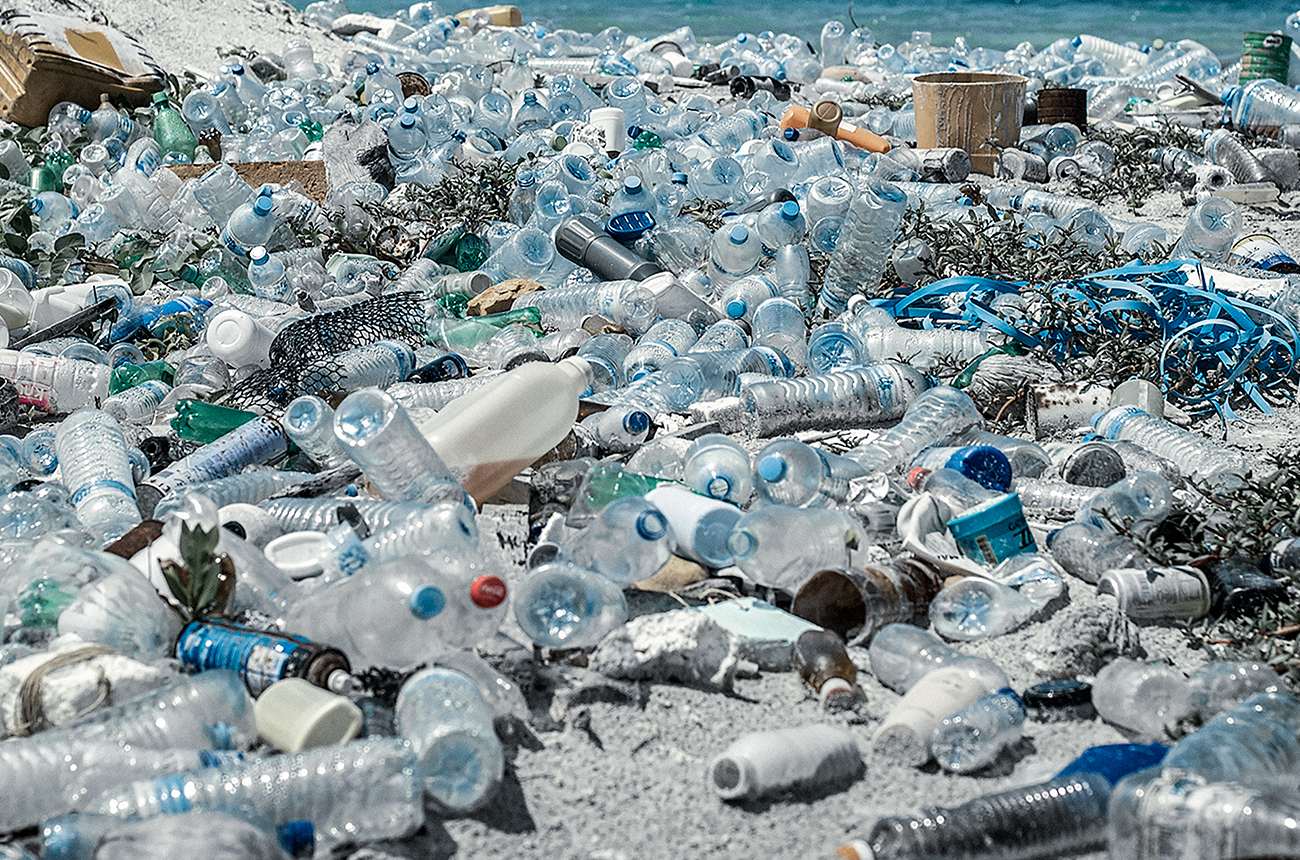
WE’RE DROWNING IN PLASTIC TRASH
Plastic is all but indestructible. That means that almost every single piece of plastic ever made is still out there, in some form. And almost nine million tons of it end up in the oceans every year, causing destruction on an industrial scale. Plastic trash litters beaches where there are no humans for thousands of miles. Nearly 700 species including whales, fish and seabirds have been found with plastic inside them. It is badly harming marine life at a chilling rate. Micro-plastics are entering the food chain and causing untold damage to the bodies of every living creature on earth. But despite knowing all this, we still can’t get enough of the stuff and we still produce it in ever-increasing quantities. Every minute we dump a truck’s-worth of plastic into the oceans. At this rate, by 2050 there will be more plastic in the oceans than fish.
PARLEY IS LEADING THE FIGHT AGAINST PLASTIC
Parley For The Oceans was formed to bring together people, organizations and brands to find new answers to today’s major ocean threats, like plastic pollution. A collaboration network and new kind of environmental organization, Parley is the space where creators, thinkers, and leaders raise awareness about the beauty and fragility of the oceans, and work together to end their destruction. Built on the belief that creativity is what drives change in our culture, Parley wants to unite creative people and brands to find ways to make plastic a thing of the past.
Plastic is a design failure—just alien matter that shouldn't be on this planet.
–Cyrill Gutsch, Founder of Parley
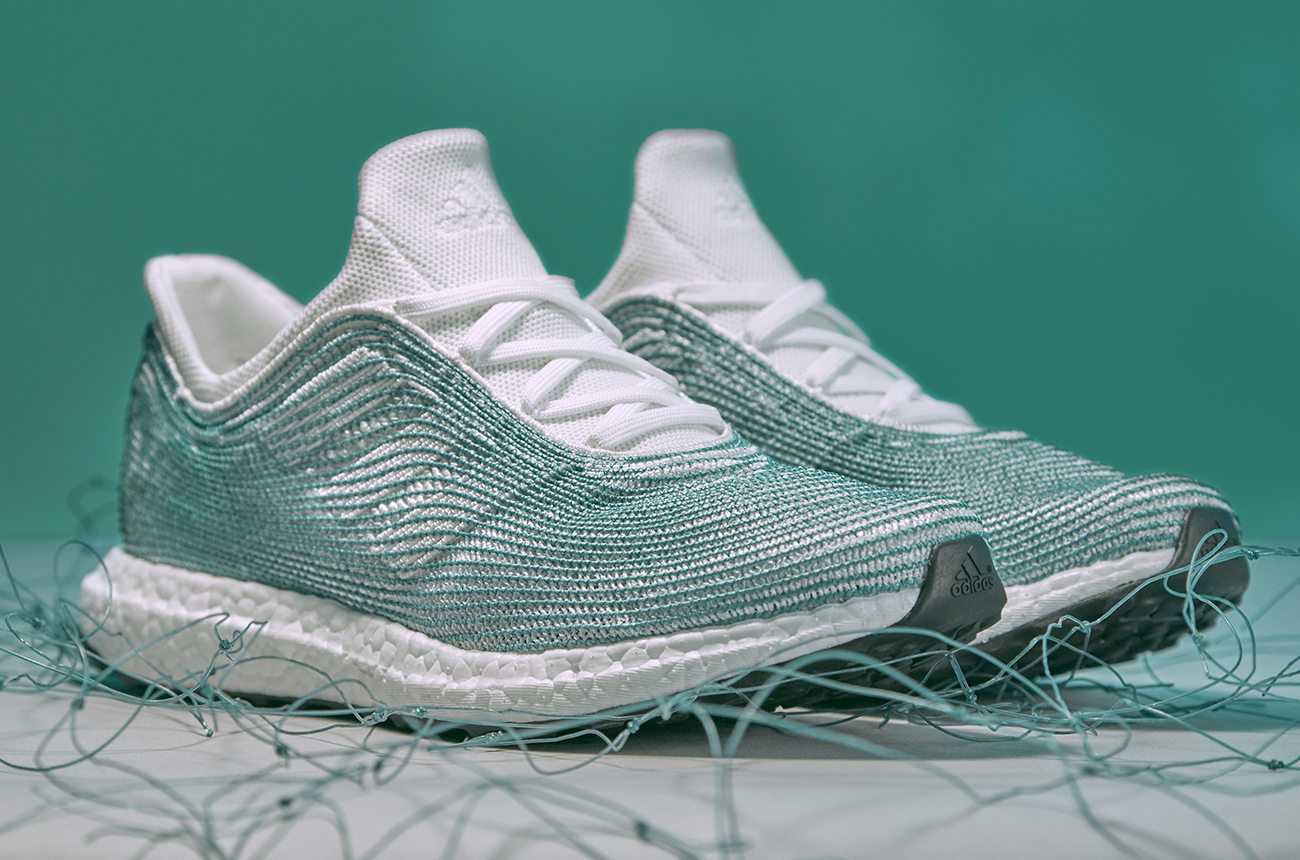
ADIDAS UNITES FOR THE CAUSE
adidas is a founding member of Parley for the Oceans. The company wanted to take a leading role in finding ways to prevent plastic pollution. The idea of taking material that pollutes the oceans and using it to create sportswear that’s every bit as good as that made from virgin plastic sounded like fantasy. The first step was working with Parley to manufacture a performance footwear concept shoe which was unveiled at the United Nations in 2015. The upper was made of yarns and filaments reclaimed and recycled from marine plastic waste and illegal deep-sea fishing gillnets. Since then, the concept has evolved into a very real success, with millions of shoes and an entire range of clothing and high-performance sportswear made from upcycled plastic trash.
AIR MEANS LIFE FOR THE OCEANS, THE PLANET, AND HUMANITY
Parley has developed a three-pronged strategy to change how the world can approach the threat of marine plastic pollution: Parley AIR. It is designed with simple, scalable steps to work for everyone, from households to institutions, businesses to governments. This way each one of us can change our own plastic use and have an impact on the oceans and the world we share.
Each letter in AIR stands for a key pillar of action: Avoid, Intercept and Redesign. "Avoid" means to use as little plastic as possible and use alternatives whenever you can. "Intercept" means to stop plastic from getting into the oceans and keep it out by recycling and finding other uses for plastic waste.
"Redesign" means to redesign the materials, methods, and products that contribute to the problem and, on a personal level, to shift your perspective on the issue of plastic pollution and then take a different approach to life as a result.
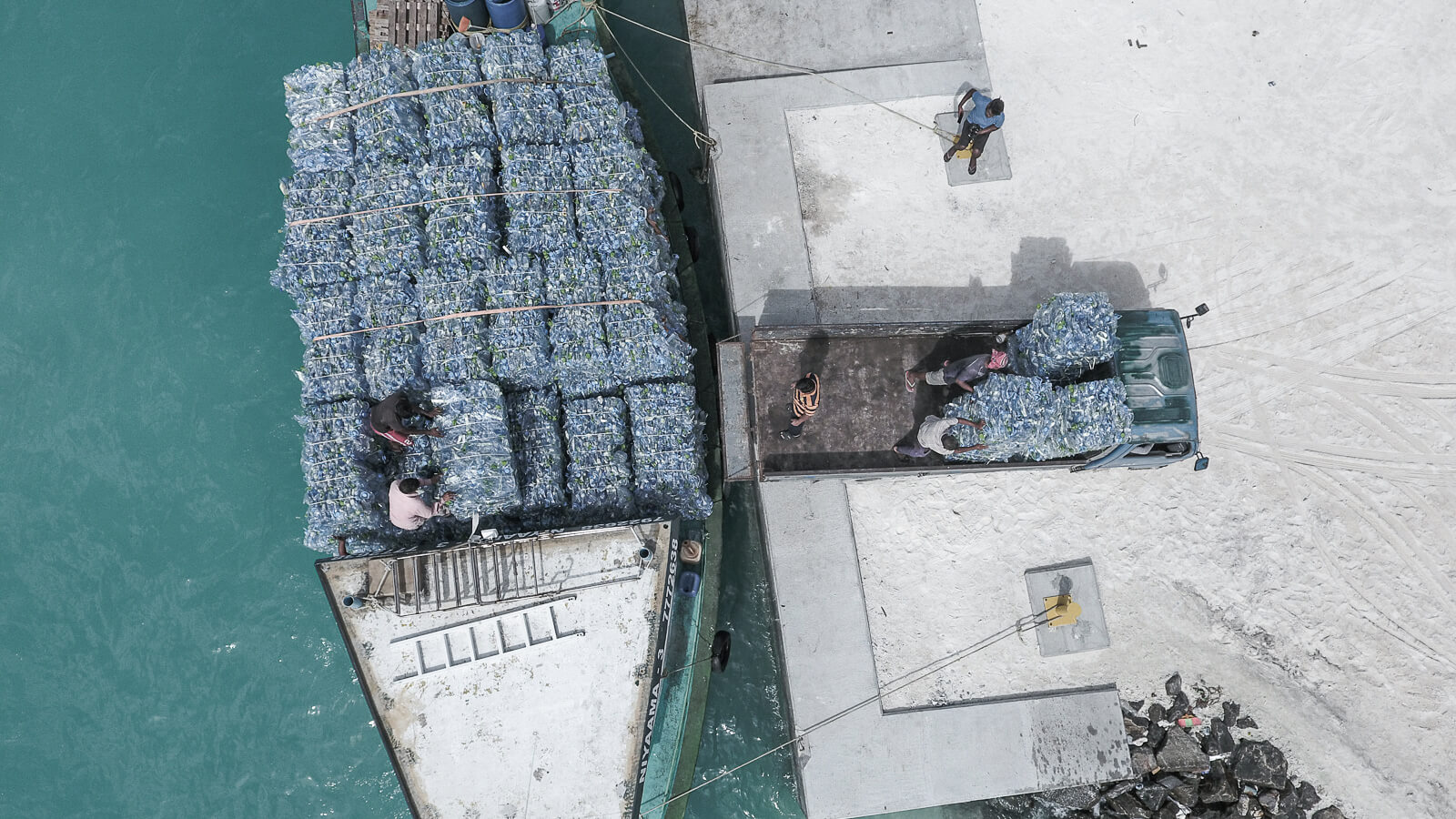
FINDING NEW USE FOR OLD TRASH
The adidas x Parley collection is an example of AIR in practice. It not only helps avoid the use of virgin plastics, it also intercepts plastic that could otherwise be polluting the oceans. It also redesigns our thinking towards plastic—as both trash and material—and finds unexpected ways to use it to help protect the oceans.
In practical terms, plastic waste is collected and baled by Parley’s global cleanup network on remote islands and beaches, and in coastal communities like the Maldives. The plastic is cleaned, stripped and manually sorted to remove all foreign objects. This trash is then shipped to a processing plant where the plastic material is flaked through a process of crushing, washing and dehydrating.
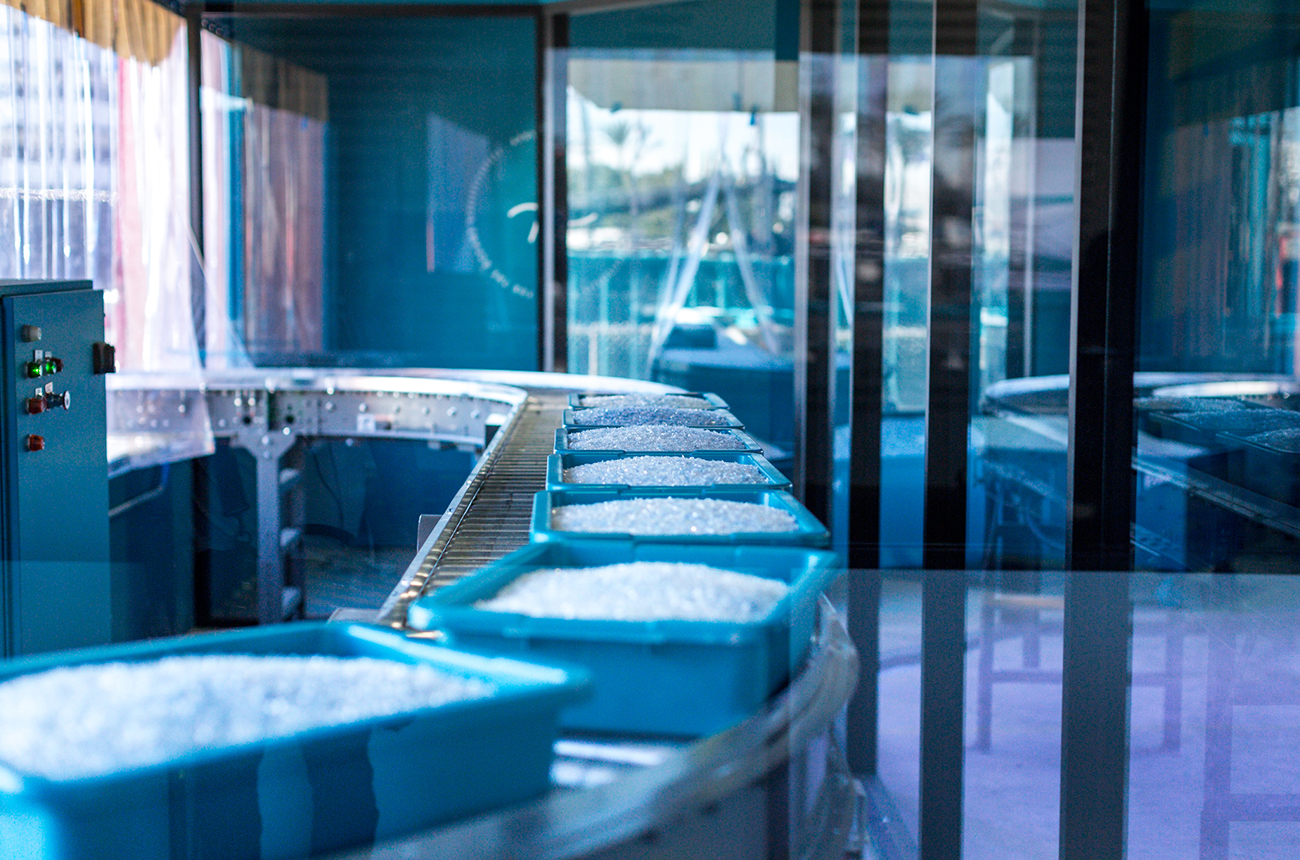
TRASH INTO SPORTSWEAR
The plastic flakes are then heated, screened, cleaned and dried before being extruded, cooled and chopped into resin pellets. These pellets are melted into a filament that can be spun into Ocean Plastic®, a high-performance polyester yarn with all the qualities you’d get from virgin plastic. The yarn is used to create a range of shoes, tees, tights and more. Every piece in the collection is made of at least 75% intercepted plastic trash.
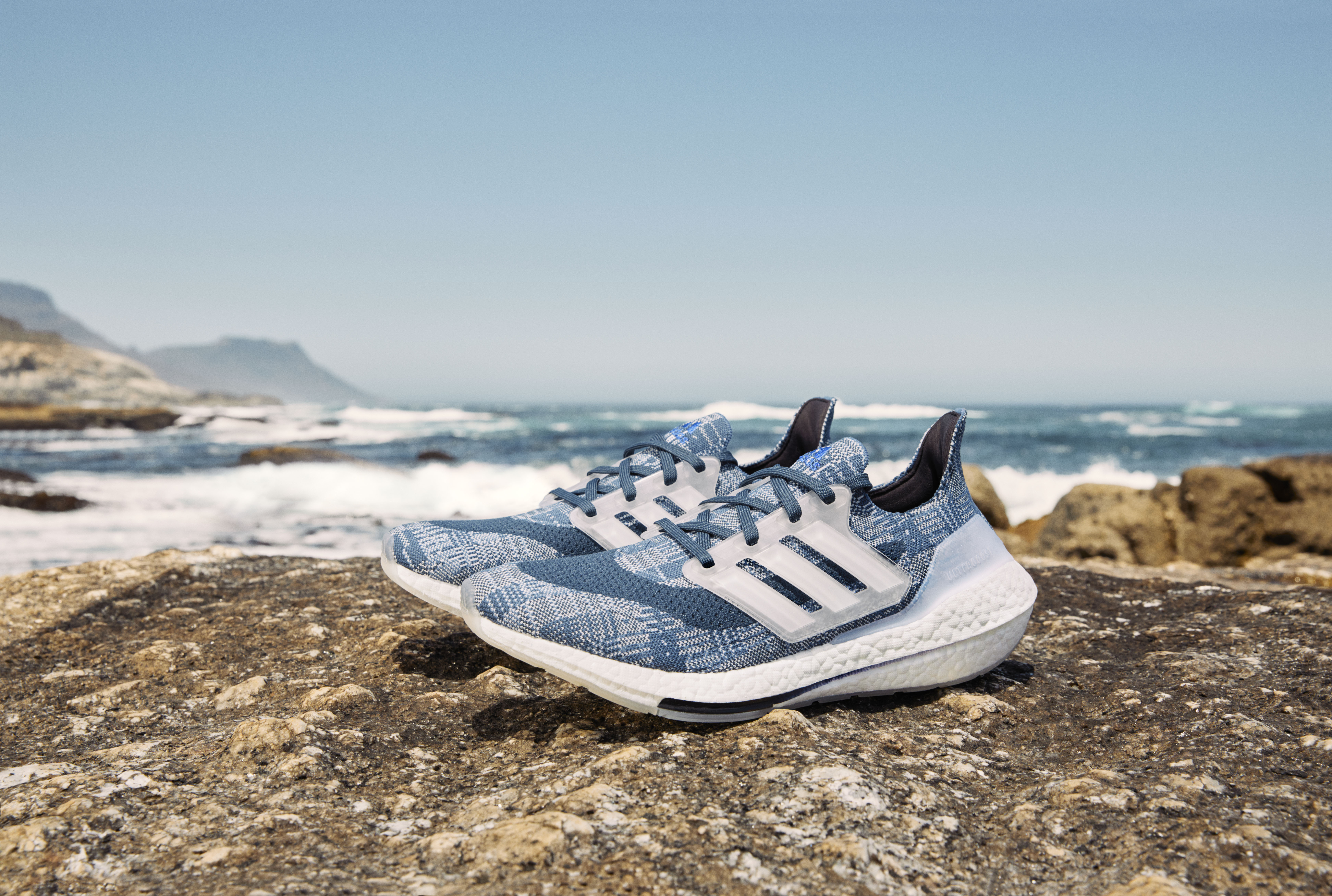
THE FIGHT STARTS HERE
After introducing a single shoe at the United Nations in 2015, the long-term eco-innovation partnership with Parley For The Oceans has led to 15 million Parley Ocean Plastic products being produced in 2020. We are applying Parley AIR principles across our global operations. We have removed plastic bags from our stores, so millions of purchases now go home in responsibly-sourced paper bags. And we have banned single-use plastic from our offices worldwide. We are also educating employees, athletes, and communities and empowering them to join the fight against plastic. To date our annual Run For the Oceans event has brought together more than 3 million runners to raise awareness for our most precious resource, raising more than 2 million USD to help clean up beaches and to educate young people about the plastic problem and the state of the oceans.
This is just the beginning of adidas’ work to remove plastic from its business. adidas has pledged to replace virgin polyester in our products with 100% recycled polyester by 2024. The longer-term aim is to move away from plastic as a material altogether, to help save our oceans, our planet, and every single one of us.
